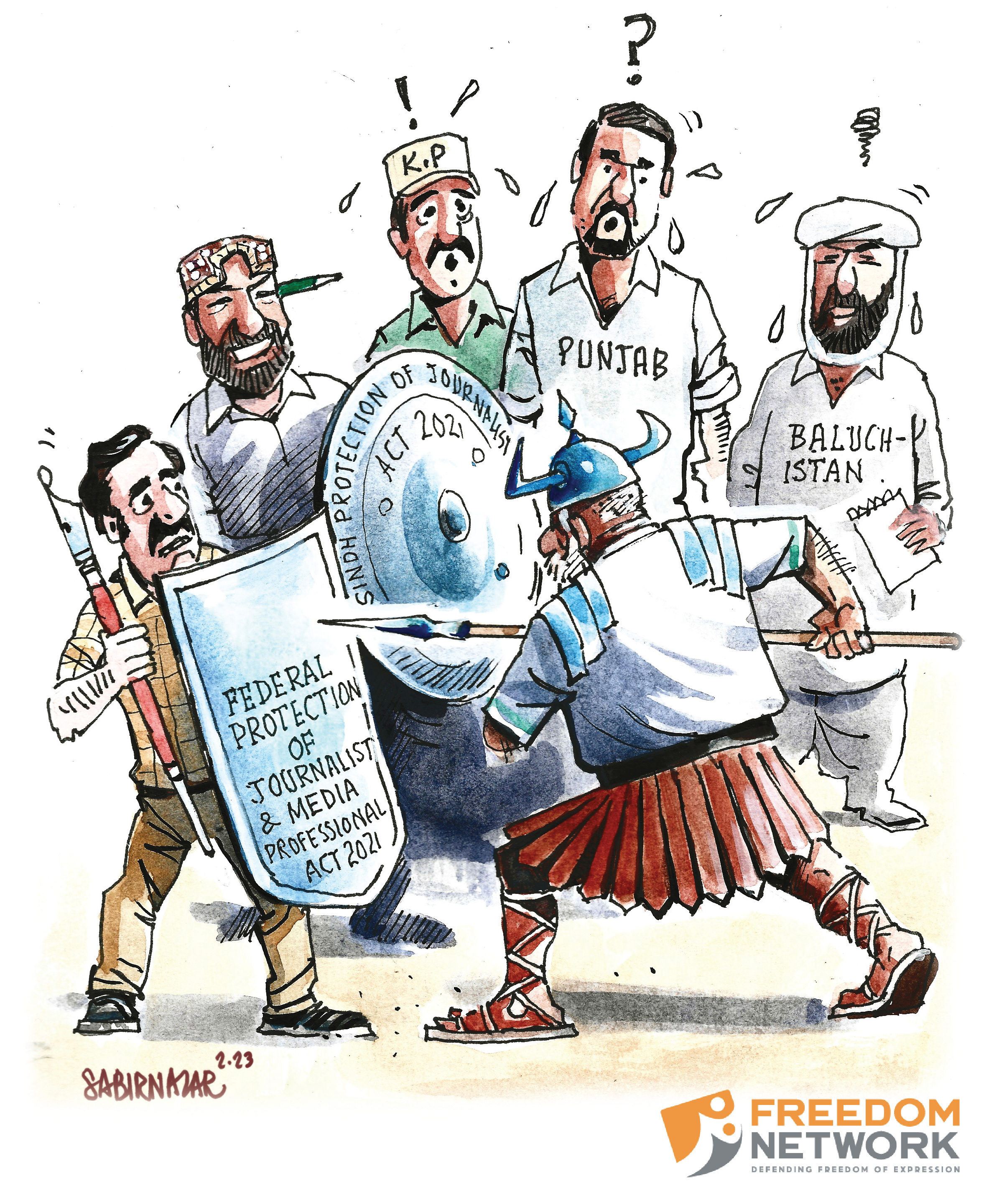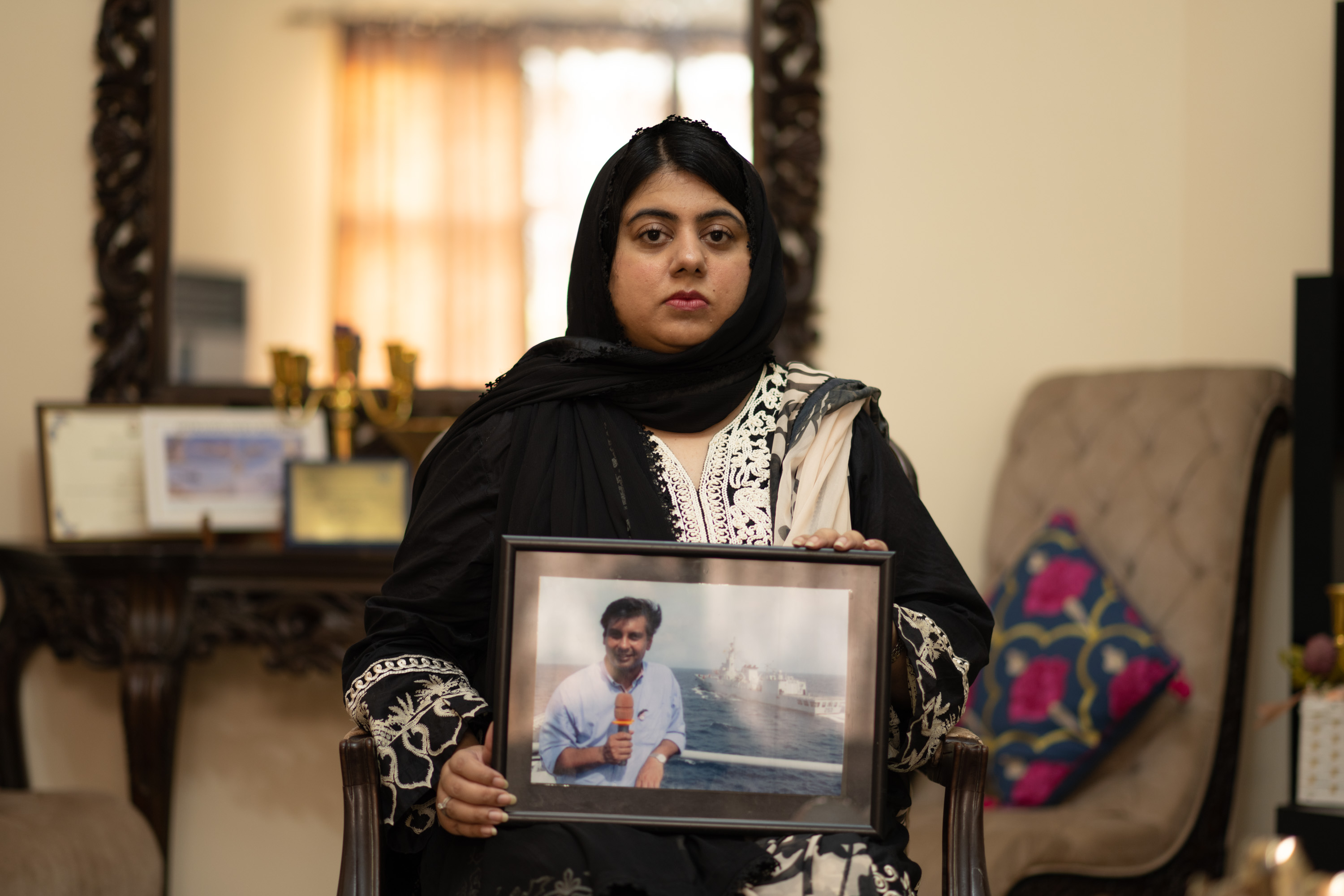Haroon Rashid
Terrorism has dominated our TV screens for several decades now. The last 14 years in Pakistan were full of blasts and blood on media. Religious extremism and militancy have also now become a world media preoccupation. Terrorism incidents now can happen anywhere. Even “Fort Europe” is not an exception. Global media reports this terrorism for hours. This is forcing many to say that reporting violence begets more violence. Coverage of terrorism for days, weeks and months has not, it seems, helped us control it but instead it has inspired, encouraged and radicalized many, mostly those living at the fringes of society. So do we really need to continue to cover terrorism as extensively as we do now? I raise this question not as someone part of international media but an ordinary viewer/observer. I think this could be the best time to ponder over it. It’s still not too late. This could be a utopian idea at the moment, but discuss and discard it now than regret later.
I know most of the hardcore journalists – some average like me – would consider this idea if I can use the word blasphemous. How can we not show terrorism – lethal suicide bombings, damage and destruction? But I think it’s time we should start thinking about how to put up filters that only allow coverage of terrorism that only informs, doesn’t inspire. Many have started having serious doubts whether we are doing the right thing. Some research has found that sensationalist media coverage of acts of terrorism results in more such acts being committed.
According to the Global Terrorism Database, an open-source database containing information on terrorist events around the world from 1970 through 2014, listed 1,395 attacks in 1998, a figure that has steadily risen since then, reaching a record high of 8,441 in 2012.
These violent incidents keep terrorist organizations alive. This is how they spread their message or point of view, create fear and recruit followers. Be it the Pakistani Taliban, al-Qaida, Boko Haram or now Isis, terrorism is everywhere on TV stations, newspapers, radio and the internet. According to Prof Jetter, one additional New York Times article about an attack in a particular country increased the number of ensuing attacks in the same country by between 11% and 15%. A good example is France. After Charlie Hebdo attack and ensuing media coverage, we are witnessing more violence there
(The mistakes made by French television channels in their coverage of the terrorist attacks in Paris in January this year led to the official censure and this week it was announced that one of the Charlie Hebdo siege victims is to sue media for putting his life at risk.)
Prof Jetter found that suicide missions receive significantly more media coverage, which he believes could explain their increased popularity among terrorist groups. He concludes that the media attention devoted to a terrorist attack was predictive of both the “likelihood of another strike in the affected country”. The findings raise the question of whether limiting the reporting of acts of terrorism would result in a decline in attacks.
For terrorists, media management has never been problematic. They know and hence mostly go for huge news making targets such as 9/11, GHQ (Pakistan Military HQs) and most recently Army Public School in Peshawar. The media, thus, provides free advertisement to the extremists and terrorists “serving their interests” rather than the masses. World-over, those who easily get inspired could see continued survival of these extremists groups as TTP and LeJ as the failure of a powerful state.
Studies have revealed that the media exaggerate the real risks of terrorism. A small but significant recent example is the coverage of attack on Punjab Home Minister Shuja Khanzada. Most of the channels in their analysis were trying to emphasis that this attack showed that the terrorists can strike at will anywhere in Punjab? Was this true? Had it been that easy they would have continued to target other important personalities or installations too. Pakistani media’s dependence on too much live coverage has meant that bomb blasts, suicide attacks and assassinations still get long coverages then is actually needed. Making quality TV/radio programmes costs money as compared to much cheaper live coverage.
Terrorism has almost become “infotainment” industry that valued sensationalism over importance. The result is a news media that over-reports stories about terrorism and under-report stories about counter-terrorism, a situation that also heightens the public’s sense of threat. This is why we may have to rethink the “sensationalist coverage of terrorism”. How to de-sensationalise it? Over the last 14 years in Pakistan we have learnt the hard way not to show bodies and not to barge into operation theatres treating the wounded. The need is to look more into where we still are erring.
This carefully filtered coverage of terrorism will be only one way to deal with the growing problem. Dr David Roberts of Defence Studies Department at King’s College London, wrote in a piece for the BBC that “…the internet cannot be un-invented, and unless we are to surrender some of our closest held beliefs on freedom of speech, we cannot stop dissemination of such depressing stories.”
Recommendations:
- New World Media Order (code) to defeat terrorism. (Is complete blackout a solution? What about freedom of speech, who is entitled to it)
- Greater cooperation between international and national media groups to learn from each other’s experiences.
- Pakistan’s recent policy of “zero tolerance for any militant” should be projected as a sincere effort to get out of vicious cycle of violence. But for that to happen Pakistan will have to come clean too.
- Gradually bringing down walls of isolation with neighbours through reciprocal, if possible permanent, deployments, of media teams.
- Pakistani media is too much submerged in crying over local and national problems. It mostly forgets that there is a huge world outside with equally interesting and relevant stories for us. We need to improve our coverage of the global events.
- Pakistan needs to look all extremist religious material/sites on the internet that pollute young minds. A strong campaign to counter it with input from civil society.
- Befriend global media rather than treat them as enemies. National media matters but international channels matter too.
- Terrorism gets more coverage than counter-terrorism, reasons could be reluctance on the part of LEAs.
- Training for journalists on how to cover terrorism.
- Last but not the least, the governments need to ensure media safety since denial of space to terrorist would make it their target too.
The author is senior journalist based in Islamabad. He may be reached @TheHaroonRashid

